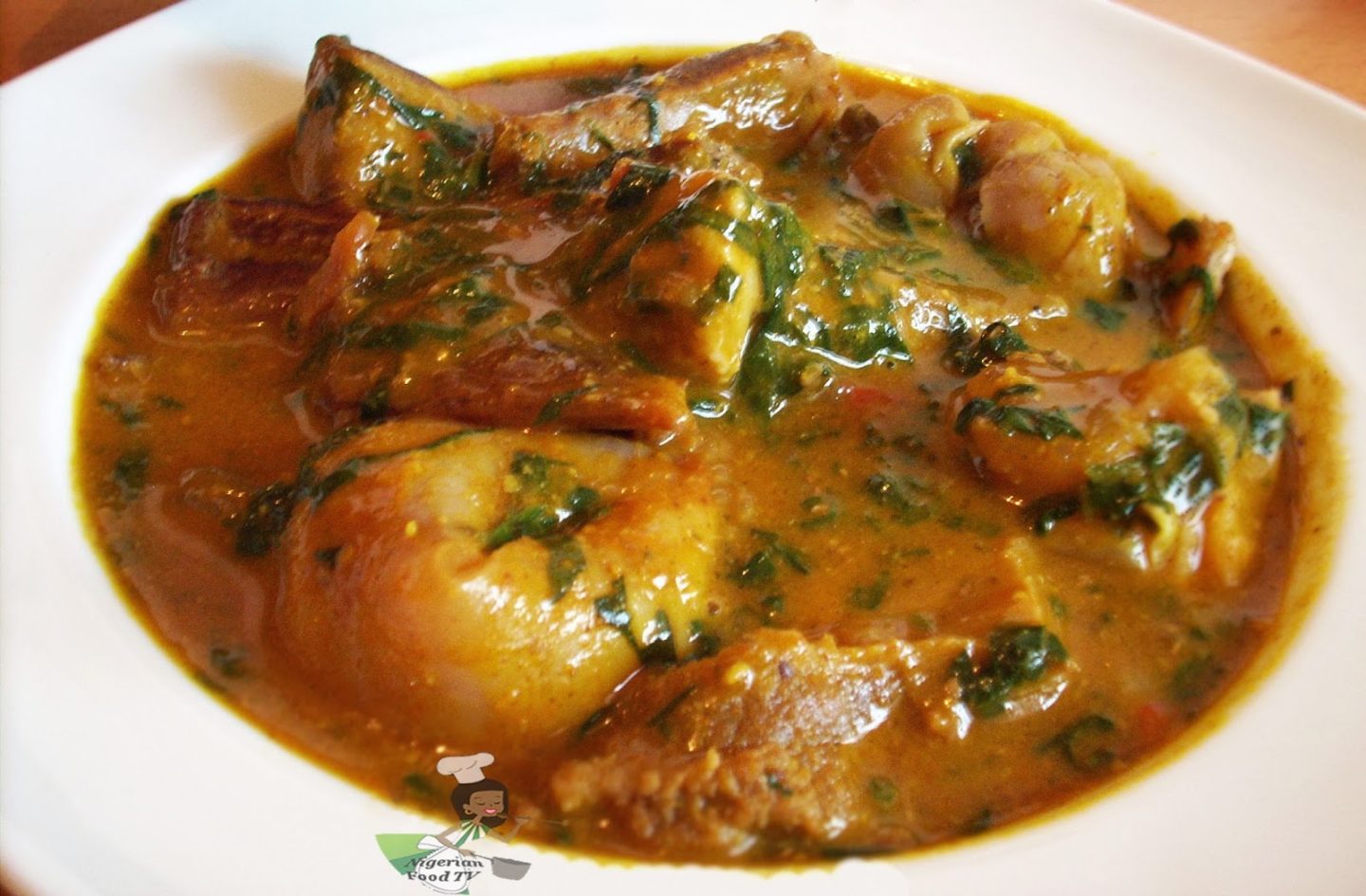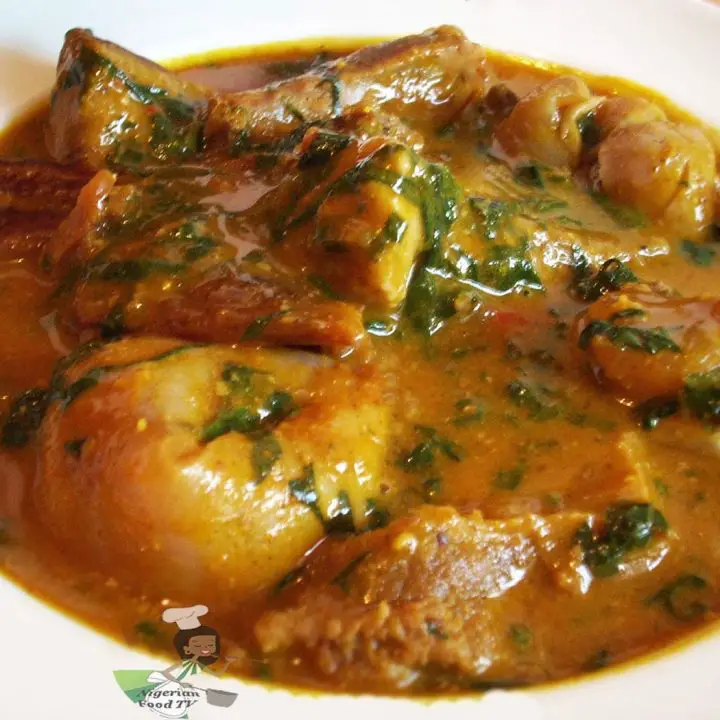Ogbono Seeds for Weight Loss
The Weight Loss Benefits of Ogbono Soup
If you haven’t already heard of the incredible benefits of Ogbono seeds (also known as wild African mango seeds), you’re in for a treat. While Ogbono seeds are a dietary staple in Nigeria, they remain relatively rare in other parts of the world.
These seeds have recently gained popularity in the health and wellness industry, with prominent figures like Dr. Mehmet Oz citing their potential to lower cholesterol and aid in weight loss. Numerous studies have confirmed the remarkable health benefits of Ogbono seeds, particularly their contribution to weight loss.
However, you might be wondering, “If Ogbono seeds can promote weight loss, why don’t people who consume Ogbono soup shed pounds effortlessly?” The answer is surprisingly straightforward: while Ogbono soup can indeed facilitate weight loss, it’s the extra ingredients and condiments added during preparation, such as meat and excessive palm oil, that significantly influence the calorie content of the dish.
More ingredients translate to more calories, which, in turn, leads to weight gain and an expanded waistline. To harness the full potential of Ogbono seeds, it’s essential to be mindful of the additional ingredients you include in your soup.
Additionally, effective workouts and exercises play a pivotal role in achieving overall well-being.
In this blog post, we’ll explore the incredible health benefits of Ogbono seeds and provide you with an easy Ogbono soup recipe designed for weight loss. Plus, I’ve compiled a list of frequently asked questions (FAQs) to answer all your queries about Ogbono soup.
The Power of Ogbono Seeds in Weight Loss
Ogbono seeds offer a range of health benefits, with weight loss being a prominent one. They contribute to your weight management goals in the following ways:
- Inhibiting Fat Production: Ogbono seeds contain compounds that inhibit the activity of enzymes responsible for converting blood sugar into fat. This results in less fat being produced by the body, supporting weight loss.
- Cholesterol Reduction: The fibers in Ogbono seeds bind to bile acids in the gut, helping flush them out of the body system. This process helps lower blood cholesterol levels, promotes digestion, increases metabolism, and prevents bloating.
Here’s an Easy Ogbono Soup Recipe for Weight Loss:
Ingredients:
- 1 cup of ground Ogbono seeds
- 100g of assorted fish or Ponmo (cow skin) or skinless chicken/turkey
- 1 tablespoon of palm oil (optional, for the classic Ogbono soup flavor)
- 1 leveled cooking spoonful of olive oil
- 2 fresh tomatoes (blended for extra color)
- 1 fresh chili pepper to taste
- 700g of chopped spinach or Ugu
- Salt to taste
- 1 stock cube
How to cook Ogbono soup for Weight Loss:
- Begin by boiling the fish or chicken with a stock cube and your preferred spices. Cook until they’re tender.
- In a separate pot, heat up the palm oil and olive oil on low heat. Add the ground tomatoes, fry them briefly, and then introduce the ground Ogbono, stirring until it dissolves.
- Next, add the cooked fish or chicken stock and mix it thoroughly. Increase the heat to medium and let the soup thicken. For a thicker consistency, use less stock. Cover the pot and allow it to simmer on low heat for 20 minutes, stirring occasionally to prevent burning.
- Add the cooked fish or chicken and pepper to taste, letting it boil for an additional 5 minutes.
- Finally, incorporate the chopped vegetables and adjust the salt to taste. Let it simmer for 3 minutes, and your Ogbono soup is ready to serve.

FAQs About Ogbono Soup and Weight Loss
- Q1: Can Ogbono soup really help with weight loss?
- A1: Yes, Ogbono soup can contribute to weight loss when consumed as part of a balanced diet.
- Q2: What are the primary weight-loss benefits of Ogbono seeds?
- A2: Ogbono seeds inhibit fat production and help reduce blood cholesterol levels.
- Q3: How can I make my Ogbono soup healthier for weight loss?
- A3: Focus on lean protein, minimal palm oil, and plenty of vegetables.
- Q4: Are there any specific exercises that complement the weight loss benefits of Ogbono soup?
- A4: Engaging in regular exercise enhances the effects of a balanced diet.
- Q5: Can Ogbono soup be included in a low-carb or keto diet for weight loss?
- A5: Yes, with some modifications, Ogbono soup can fit into low-carb or keto diets.
- Q6: How can I store Ogbono soup for later consumption?
- A6: Allow it to cool and store it in airtight containers in the refrigerator or freezer.
- Q7: Can I make Ogbono soup without palm oil for a lighter version?
- A7: Yes, you can opt for a healthier Ogbono soup by using less or no palm oil.
- Q8: Are there any special tips for making Ogbono soup for weight loss?
- A8: Portion control and ingredient choices are crucial for an effective Ogbono soup.
- Q9: Can I make Ogbono soup without meat or animal products for a vegetarian or vegan version?
- A9: Yes, you can prepare a vegetarian or vegan-friendly Ogbono soup using plant-based proteins.
- Q10: Are there any potential side effects or allergies associated with Ogbono seeds?
- A10: While rare, allergies to Ogbono seeds are possible. Consult a healthcare professional if you have known nut allergies.
- Q11: Can children enjoy Ogbono soup for its weight loss benefits?
- A11: Yes, but make child-friendly modifications as needed.
- Q12: Is Ogbono soup suitable for individuals with dietary restrictions, such as gluten-free or lactose-free diets?
- A12: Ogbono soup can be adapted for various dietary restrictions.
- Q13: Can I prepare a large batch of Ogbono soup and freeze it for future use?
- A13: Yes, Ogbono soup can be prepared in advance and stored for convenience.
- Q14: Are there variations of Ogbono soup recipes from different regions or cultures?
- A14: Different regions may have variations in their Ogbono soup recipes, offering diverse flavors and ingredients.
- Q15: Can Ogbono seeds be used in other dishes besides Ogbono soup?
- A15: Ogbono seeds can enhance the thickness and flavor of stews, sauces, and soups in various cuisines.
- Q16: Is ogbono soup good for you?
- A16: Ogbono soup is nutritious and can be a part of a healthy diet. It is rich in vitamins and minerals.
- Q17: How many calories in a cup of ogbono soup?
- A17: The number of calories in a cup of ogbono soup can vary, but it’s generally around 200-300 calories, depending on the recipe and ingredients used.
- Q18: Which soup is best for fat loss?
- A18: Soups like vegetable soup, clear broth soups, and soups with lean protein can be good options for weight loss.
- Q19: Is ogbono soup high in fat?
- A19: Ogbono soup can be high in fat, especially if it’s prepared with a lot of palm oil and fatty meats. It’s important to control the fat content when making it.
- Q20: What soup can I eat every day to lose weight?
- A20: A low-calorie, high-fiber soup like vegetable or chicken soup with lots of vegetables can be a good choice for daily consumption during a weight loss regimen.
- Q21: How many kgs can I lose on a soup diet?
- A21: The amount of weight you can lose on a soup diet varies depending on various factors, but rapid weight loss is not typically recommended for long-term success. Consult a healthcare professional for guidance.
- Q22: How can I lose weight fast in Nigeria?
- A22: Fast weight loss is not usually recommended, as it can be unhealthy. Sustainable weight loss in Nigeria, like anywhere else, is achieved through a balanced diet and regular exercise.
- Q23: Is ogbono high in calories?
- A23: Ogbono can be moderately high in calories due to its ingredients, especially if prepared with palm oil and rich meats.
- Q24: What does ogbono do to the body?
- A24: Ogbono is rich in nutrients and can contribute to overall health. It’s a good source of vitamins and minerals and can support a balanced diet.
- Q25: What is ogbono called in English?
- A25: Ogbono is often referred to as “African wild mango” in English.
- Q26: Is ogbono soup Igbo or Yoruba?
- A26: Ogbono soup is a popular dish in both Igbo and Yoruba cuisine in Nigeria.
- Q27: Is ogbono Yoruba or Igbo?
- A27: Ogbono is enjoyed in both Yoruba and Igbo communities in Nigeria. It’s a common dish in Nigerian cuisine.
- Q28: Why is my ogbono soup bitter?
- A28: Ogbono soup can turn bitter if the ogbono seeds are over-roasted or burnt during preparation. Properly roasting the seeds is essential to avoid bitterness.
Conclusion:
Ogbono soup is not just a flavorful dish; it’s a valuable addition to your weight loss journey. Its powerful weight-loss benefits, combined with a balanced diet and regular exercise, make it a winning choice for those seeking to shed those extra pounds. We hope this Ogbono soup recipe and FAQs have provided you with the information and inspiration you need to incorporate this delicious and nutritious dish into your meal plan.
Remember, as with any dietary changes, it’s essential to consult with a healthcare professional or nutritionist to tailor your diet to your individual needs and goals. Happy cooking and happy eating!

Ogbono Soup Recipe for Weight Loss (wild mango seed soup)
Ogbono Soup recipe for those who want to lose weight and still enjoy this tasty Nigerian soup . Learn how to cook ogbono soup for weight loss.
Ingredients
- 1 cup of ground Ogbono seeds
- 100g of assorted fish or Ponmo (cow skin) or skinless chicken/turkey
- 1 tablespoon of palm oil (optional, for the classic Ogbono soup flavor)
- 1 leveled cooking spoonful of olive oil
- 2 fresh tomatoes (blended for extra color)
- 1 fresh chili pepper to taste
- 700g of chopped spinach or Ugu
- Salt to taste
- 1 stock cube
Instructions
- Begin by boiling the fish or chicken with a stock cube and your preferred spices. Cook until they’re tender.
- In a separate pot, heat up the palm oil and olive oil on low heat. Add the ground tomatoes, fry them briefly, and then introduce the ground Ogbono, stirring until it dissolves.
- Next, add the cooked fish or chicken stock and mix it thoroughly. Increase the heat to medium and let the soup thicken. For a thicker consistency, use less stock. Cover the pot and allow it to simmer on low heat for 20 minutes, stirring occasionally to prevent burning.
- Add the cooked fish or chicken and pepper to taste, letting it boil for an additional 5 minutes.
- Finally, incorporate the chopped vegetables and adjust the salt to taste. Let it simmer for 3 minutes, and your Ogbono soup is ready to serve.

Greetings. Thank you for this recipe. A concern of mine is once more and more people gain knowledge of this seed, wouldn't it become to costly for the people who access and use this everyday? Like coconut oil for black soap did? Once native items that have been used for centuries by native people become mainstream it becomes inaccessible to them. That bothers me